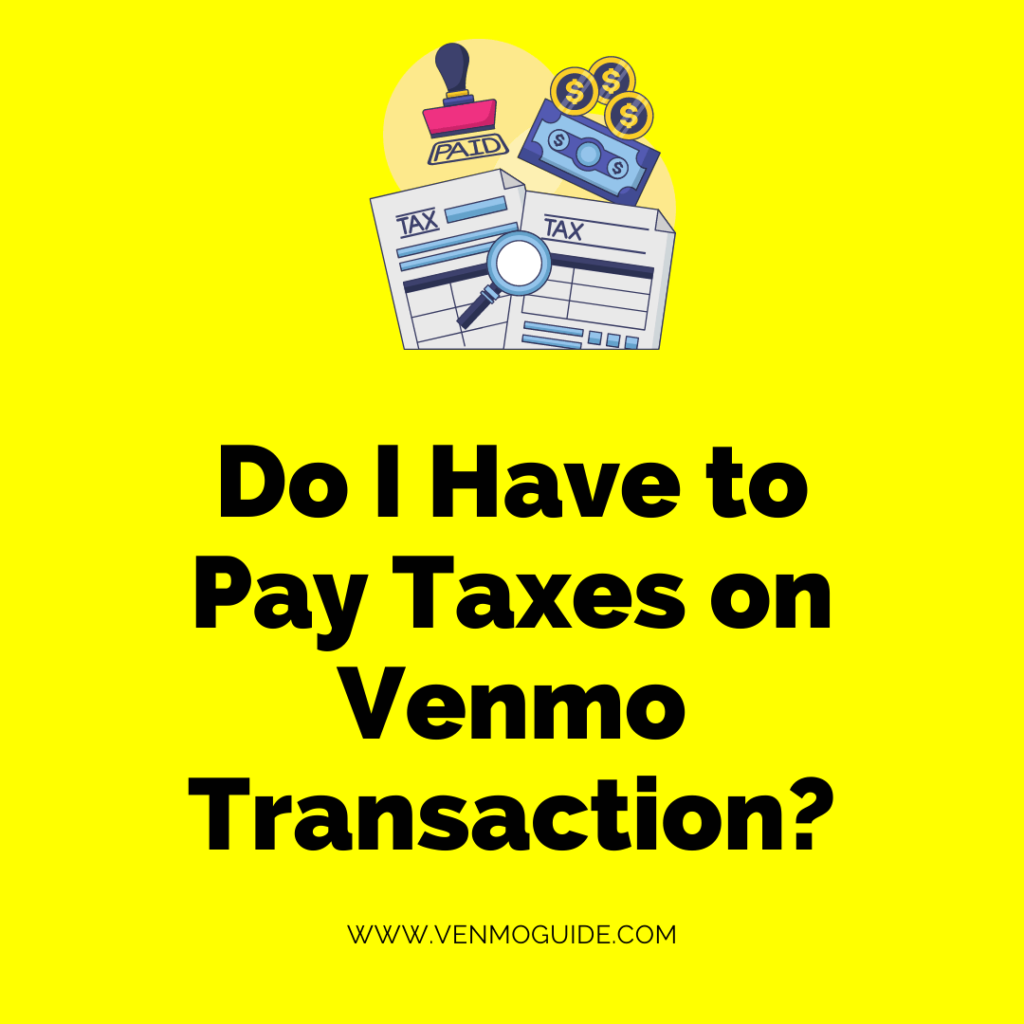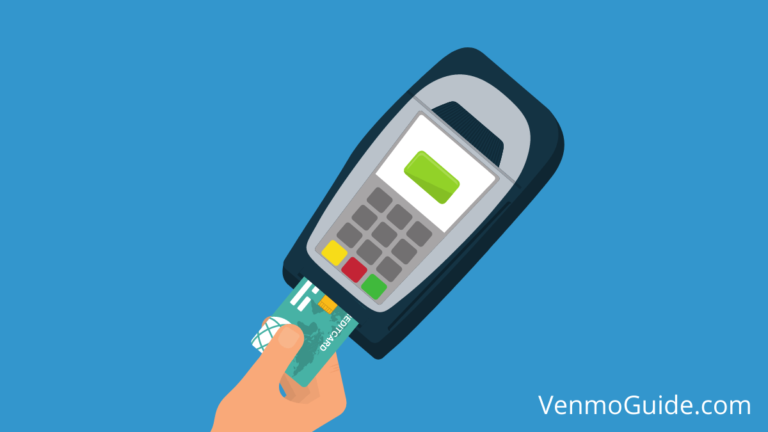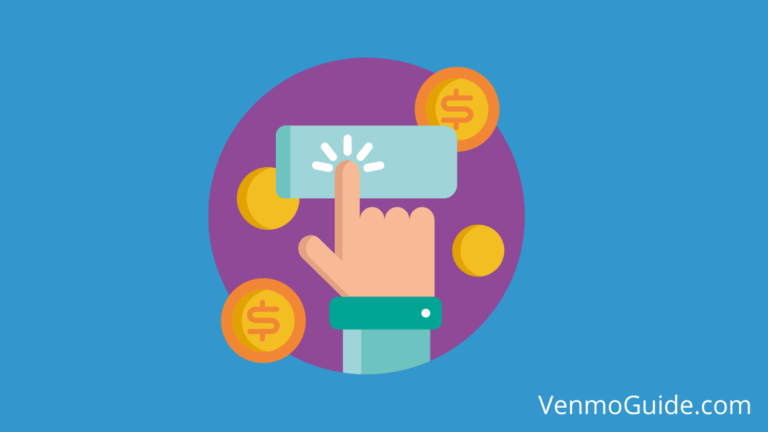If you’ve been wondering whether or not you have to pay taxes on your Venmo transactions, we’ve got you covered.
Yes, You will need to pay taxes on your Venmo account for Business use if you receive $600 or more payments in total for goods and services via Venmo. However, you won’t need to pay taxes for personal transactions with friends and family.
Hence, it’s recommended that you keep separate personal and business Venmo accounts.
Continue reading for an in-depth answer!
Venmo is a P2P (Peer-to-peer) mobile payment solution that allows users to send and receive money conveniently with a simple mobile app. But do you have to pay taxes to use it?
The answer depends on how and why you use Venmo.
So, keep reading to learn more about Venmo’s tax policy and if / when you’re required to pay taxes on your transactions.
Read: Venmo Tax Reporting for Personal Use: Does Venmo Report to IRS

Do You Pay Tax on Venmo for Personal Use?
You won’t pay taxes if you have a personal Venmo account. So, transactions from friends and family don’t fall under the tax umbrella.
However, if you have a business Venmo account, you must report your earnings to the tax authority to avoid legal claims.
When Do You Have to Report Your Earnings for Tax Payments?
Not all Venmo business account users are required to pay taxes. According to the policies of most P2P platforms, Venmo included, users have to report their business activity when:
- The gross payment volume exceeds $20,000
- You’ve received more than 200 separate payments within the previous calendar year
So, if you have a small business and you’re willing to use Venmo to handle payments, don’t panic; you won’t have to pay any taxes until one or both of the conditions mentioned above are met.
Plus, Venmo makes it easier for you to keep track of your tax filing by sending you a Form 1099-K by the end of the year in the event that you’ve achieved one or both of the above conditions.
However, even if it happens that you don’t receive this form, you’re still obligated by law to report your taxable income to the IRS (Internal Revenue Service). So keep that in mind.
New Form 1099-K Law Changes in 2022
New changes to the Form 1099-K laws regarding business transactions over P2P mobile payment services will be effective as of January 2022.
According to these changes, instead of being eligible for tax payments when you earn a gross payment volume of $20,000 or 200 separate transactions as a minimum, businesses will instead be required to pay taxes when they process $600 or more of earnings.
Tips for Accurate Income Reporting
A Form 1099-K includes both taxable and non-taxable income, so it’d be best if you keep track of your revenue, profits, and overall income to facilitate the tax filing process and prevent errors.
One way to keep track of your finances is by using a recordkeeping system for your business transactions. By keeping track of bank statements, invoices, receipts, and other finances, you’ll be able to get a more accurate representation of your taxable income.
You can save your financial records either electronically or manually. Of course, an electronic version would make more sense since it’s easier to generate and save. But there’s nothing wrong with going the old-fashioned way if that’s what you prefer.
Also, keep in mind that any amount of money received on your business account is considered taxable, whether you receive it from a customer or a friend. So, it’s recommended that you keep separate personal and business Venmo accounts.
In other words, to avoid unnecessary increases in your taxes, consider creating a separate personal account for personal transactions and asking your friends and relatives to only send you money to that account.
Benefits of Using Business Venmo Accounts
Venmo has many advantages that small business owners can significantly benefit from, such as Venmo’s low fees, ease of use, and intuitive setup.
Also, every customer gets a unique link that they can use to send you a payment, and the customer doesn’t even have to be a Venmo user. Not to mention, the payments will be processed almost instantly if you pay a 1% fee.
We also like the fact that Venmo offers an in-app gallery that lets businesses showcase their products in an eye-catching and convenient way. Another added bonus is that you can enable tipping on your customer purchases.
Other functions and features include:
- The perk of getting referrals through the Venmo network
- High transaction limits on payments and bank transfers
- Ability to generate QR codes for contactless payments
- Ability to refer your potential customers to your website and social media accounts right inside the app
Can I Use a Personal Venmo Account for Business Transactions?
Theoretically, yes, you can use your personal Venmo account to receive business payments. However, in practice, this won’t probably work out well.
Personal Venmo accounts have many limitations that prevent them from being suitable for business use. These include transfer limits, no Form 1099-K messages, and no way for you to generate links for customers to pay.
So, if your business is still starting, you might be able to use your personal Venmo account for maybe a few purchases, but you’ll need to create a business account sooner or later.
Final Words
To recap, Venmo users who use the app to casually send and receive money to and from other people don’t have to worry about taxes.
But in case you own a business Venmo account, you must report your earnings to the IRS if your gross payment volume surpasses the $20,000 mark or you receive 200 separate business payments within a calendar year.
Also, keep in mind that, as of January 2022, the only requirement will be processing $600 or more of earnings within a calendar year.
Other than that, you can safely and legally use Venmo for other purposes. And remember, tax reporting is your personal responsibility, so make sure that you do it for the sustainability of your business.






